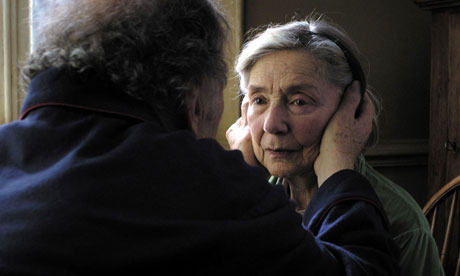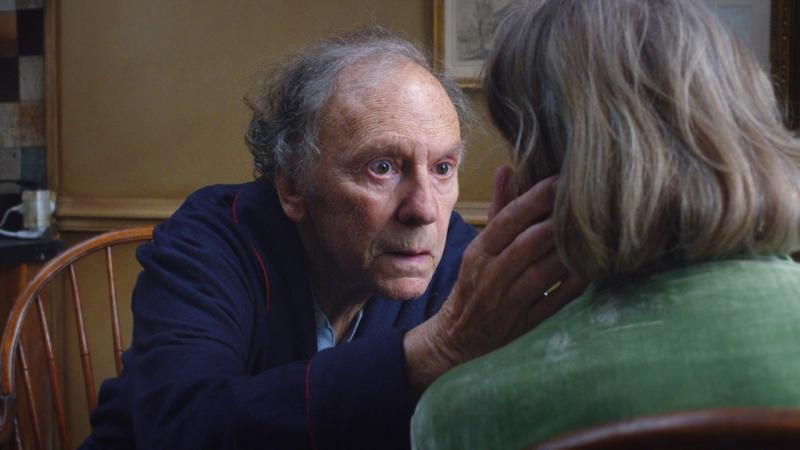Michael Haneke’s latest film, Amour, is a gracious downer gracefully crafted. It is a story of an aging husband as a caretaker of his slowly declining wife, too familiar to too many and possibly too painful for many in the audience to watch. Yet it is interminably engaging, deeply felt, and long remembered. Haneke eschews melodrama by preparing the viewers to go slowly. How he does it impressed me most of all.
He opens the film with a pre-credit scene of Georges's dead body discovered by firemen breaking the doors into the couple’s apartment; he places the narrative conclusion at the outset (as Hitchcock often does) and he does so to prevent us from chasing the narrative as a suspense (unlike Hitchcock). The body lies peacefully, and we are given no clue as to how he died. In the first scene after the credit, we see a concert hall straight on in a long shot staying on for a long time so as to allows us to scan and take time to find Georges (whom we have seen so far only briefly) and Anne (whom we have not yet seen), listening intently to Chopin being played on the stage off screen. He thus trains us to watch the film without rushing, in the pace simulating effectively Anne’s slow physical deterioration. Then, through the course of the film, he maintains preference for static camera and long takes; the camera’s intense gaze, unblinking and caressing, records meticulously and matter-of-factly the mundane activities of caring with the same tender patience of Georges looking after Anne, paying the same close attention to details as he does and thereby making tactile without sentimentality his deep genuine love for her.
At the time of filming, Jean-Louis Trintignant in the role of Georges was 81; Emmanuelle Riva as Anne, 84. I barely recognized him from his screen image I was familiar with from 1969/1970: Z, Ma nuit chez Maud, and Il conformista. I could not recognize her at all from Hiroshima mon amour (1959) or even from Kieslowski’s Blue (1993). To see them was a special pleasure; but their performance was totally stunning, as impressive as Haneke’s direction, and so was Isabelle Huppert as the couple’s alienated daughter.




No comments:
Post a Comment